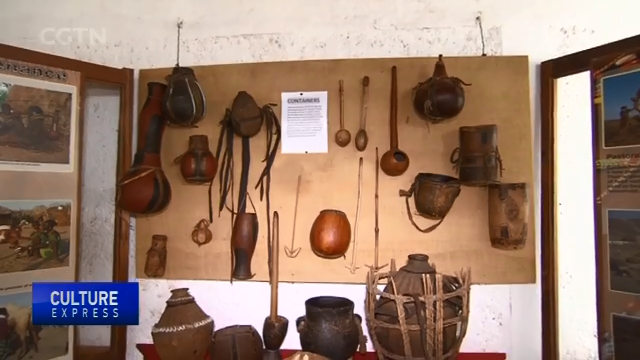
19:26, 06-Jul-2018
Kenya Cultural Preservation: Museum in the desert preserves unique remote cultures
Updated
19:16, 09-Jul-2018
03:55

We head to Kenya now, where an initiative is preserving the heritage of minority groups in the country's remote northern region. Terry Wangari traveled to the one-of-a-kind museum in Marsabit County. Take a look.
Hidden in this vast semi-arid region of northern Kenya is a gem.
The Desert Museum in Loiyangalani, Marsabit County, showcases artifacts from minority groups.
An Italian government initiative, it was opened in 2007 to preserve cultures that are dying out due to modernisation.
REHMAN MOGHAL CURATOR, THE DESERT MUSEUM "The idea behind the museum medium began in 2007 when the Italian government felt that the communities residing in the Lake Turkana Basin, their culture is being forgotten. Their traditional culture will be preserved for future generations."
The museum has collections from the four main communities in the region - El Molo, Samburu, Turkana and Rendille.
After the Italian government handed over control of the museum to county authorities in 2011, it was expanded to include another 10 minority groups in danger of being forgotten.
Gathering these artifacts has not been easy.
REHMAN MOGHAL CURATOR, THE DESERT MUSEUM "It was a major task and a major challenge. We had to plead with the people with their artifacts for sale."
The Desert Museum has opened up Marsabit town to local and international tourists who want to learn about northern Kenya's rich cultural heritage.
Rehman Moghal is a retired teacher with a passion for little-known, unique cultures. He's made it his mission to preserve the heritage of these minority groups for future generations.
REHMAN MOGHAL CURATOR, THE DESERT MUSEUM "Culture is what puts people together. It's the one thing that binds people together, but that doesn't mean that we should dump our culture."
TERRY WANGARI MARSABIT COUNTY, KENYA "It's museums like this one that reminds us the importance of cultural preservation. After all, to know where you're going, you have to know where you've come from."

SITEMAP
Copyright © 2018 CGTN. Beijing ICP prepared NO.16065310-3
Copyright © 2018 CGTN. Beijing ICP prepared NO.16065310-3